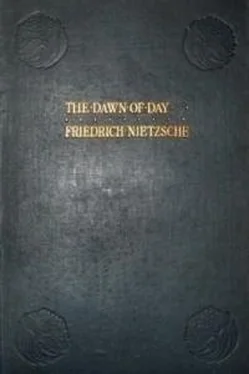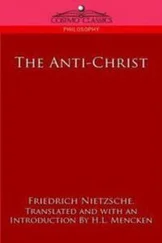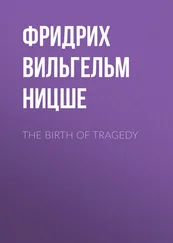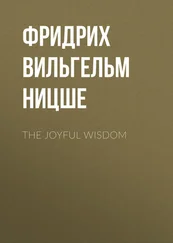The hard fact upon which such wishes are based, however, is that he himself has come to a halt before his teaching, and has set up his boundary stone, his “thus far and no farther.” In canonising himself he has drawn up his own death warrant: from now on his mind cannot develop further. His race is run; the hour–hand stops. Whenever a great thinker tries to make himself a lasting institution for posterity, we may readily suppose that he has passed the climax of his powers, and is very tired, very near the setting of his sun.
543.
WE MUST NOT MAKE PASSION AN ARGUMENT FOR TRUTH.—Oh, you kind–hearted and even noble enthusiasts, I know you! You wish to seem right in our eyes as well as in your own, but especially in your own!—and an irritable and subtle evil conscience so often spurs you on against your very enthusiasm! How ingenious you then become in deceiving your conscience, and lulling it to sleep! How you hate honest, simple, and clean souls; how you avoid their innocent glances! That better knowledge whose representatives they are, and whose voice you hear only too distinctly within yourselves when it questions your belief,—how you try to cast suspicion upon it as a bad habit, as a disease of the age, as the neglect and infection of your own intellectual health! It drives you on to hate even criticism, science, reason! You must falsify history to make it testify in your favour; you must deny virtues in case they should obscure those of your own idols and ideals.
Coloured images where arguments are needed! Ardour and power of expression! Silver mists! Ambrosian nights! well do you know how to enlighten and to darken—to darken by means of light! and indeed when your passion can no longer be kept within bounds the moment comes when you say to yourselves, “Now I have won for myself a good conscience, now I am exalted, courageous, self–denying, magnanimous; now I am honest!” How you long for these moments when your passion will confer upon you full and absolute rights, and also, as it were, innocence. How happy you are when engaged in battle and inspired with ecstasy or courage, when you are elated beyond yourself, when gnawing doubt has left you, and when you can even decree: “Any man who is not in ecstasy as we are cannot by any chance know what or where truth is.” How you long to meet with those who share your belief in this state—which is a state of intellectual depravity—and to set your own fire alight with their flames! Oh, for your martyrdom, your victory of the sanctified lie! Must you really inflict so much pain upon yourselves?— Must you?
544.
HOW PHILOSOPHY IS NOW PRACTISED.—I can see quite well that our philosophising youths, women, and artists require from philosophy exactly the opposite of what the Greeks derived from it. What does he who does not hear the continual exultation that resounds through every speech and counter–argument in a Platonic dialogue, this exultation over the new invention of rational thinking, know about Plato or about ancient philosophy? At that time souls were filled with enthusiasm when they gave themselves up to the severe and sober sport of ideas, generalisations, refutations,—that enthusiasm which perhaps those old, great, severe, and prudent contrapuntists in music have also known. At that time the Greek palate still possessed that older and formerly omnipotent taste: and by the side of this taste their new taste appeared to be enveloped in so much charm that the divine art of dialectic was sung by hesitating voices as if its followers were intoxicated with the frenzy of love. That old form of thinking, however, was thought within the bounds of morality, and for it nothing existed but fixed judgments and established facts, and it had no reasons but those of authority. Thinking, therefore, was simply a matter of repetition, and all the enjoyment of speech and dialogue could only lie in their form.
Wherever the substance of a thing is looked upon as eternal and universally approved, there is only one great charm, the charm of variable forms, that is, of fashion. Even in the poets ever since the time of Homer, and later on in the case of the sculptors, the Greeks did not enjoy originality, but its contrary. It was Socrates who discovered another charm, that of cause and effect, of reason and sequence, and we moderns have become so used to it, and have been brought up to the necessity of logic that we look upon it as the normal taste, and as such it cannot but be repugnant to ardent and presumptuous people. Such people are pleased by whatever stands out boldly from the normal: their more subtle ambition leads them to believe only too readily that they are exceptional souls, not dialectic and rational beings, but, let us say, “intuitive” beings gifted with an “inner sense,” or with a certain “intellectual perception.” Above all, however, they wish to be “artistic natures” with a genius in their heads, and a demon in their bodies, and consequently with special rights in this world and in the world to come—especially the divine privilege of being incomprehensible.
And people like these are “going in for” philosophy nowadays! I fear they will discover one day that they have made a mistake—what they are looking for is religion!
545.
BUT WE DO NOT BELIEVE YOU.—You would fain pass for psychologists, but we shall not allow it! Are we not to notice that you pretend to be more experienced, profound, passionate, and perfect than you actually are?—just as we notice in yonder painter that there is a trifling presumptuousness in his manner of wielding the brush, and in yonder musician that he brings forward his theme with the desire to make it appear superior to what it really is. Have you experienced history within yourselves, commotions, earthquakes, long and profound sadness, and sudden flashes of happiness? Have you acted foolishly with great and little fools? Have you really undergone the delusions and woe of the good people? and also the woe and the peculiar happiness of the most evil? Then you may speak to me of morality, but not otherwise!
546.
SLAVE AND IDEALIST.—The followers of Epictetus would doubtless not be to the taste of those who are now striving after the ideal. The constant tension of his being, the indefatigable inward glance, the prudent and reserved incommunicativeness of his eye whenever it happens to gaze upon the outer world, and above all, his silence or laconic speech: all these are characteristics of the strictest fortitude,—and what would our idealists, who above all else are desirous of expansion, care for this? But in spite of all this the Stoic is not fanatical. He detests the display and boasting of our idealists: his pride, however great it may be, is not eager to disturb others. It permits of a certain gentle approach, and has no desire to spoil anybody’s good humour—nay, it can even smile. A great deal of ancient humanity is to be seen exemplified in this ideal. The most excellent feature about it, however, is that the thinker is completely free from the fear of God, strictly believes in reason, and is no preacher of penitence.
Epictetus was a slave: his ideal man is without any particular rank, and may exist in any grade of society, but above all he is to be sought in the deepest and lowest social classes, as the silent and self–sufficient man in the midst of a general state of servitude, a man who defends himself alone against the outer world, and is constantly living in a state of the highest fortitude. He is distinguished from the Christian especially, because the latter lives in hope in the promise of “unspeakable glory,” permits presents to be made to him, and expects and accepts the best things from divine love and grace, and not from himself. Epictetus, on the other hand, neither hopes nor allows his best treasure to be given him—he possesses it already, holds it bravely in his hand, and defies the world to take it away from him. Christianity was devised for another class of ancient slaves, for those who had a weak will and weak reason—that is to say, for the majority of slaves.
Читать дальше











